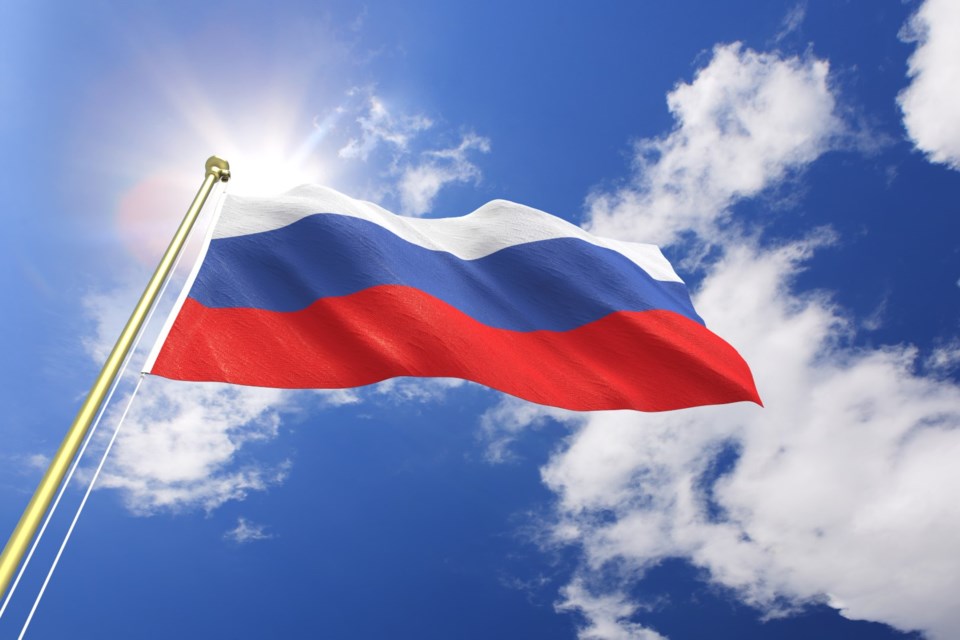It is axiomatic that events are interpreted differently by different parties. As the saying goes, one woman’s terrorist is another woman’s freedom fighter.
How a person perceives an event will be influenced by their personal history, circumstances, access to objective reporting, level of education, capacity for independent thought, willingness to think independently, religiosity and prejudices.
I argue that the origins of the Russia-Ukraine war lie partly in the fact that Russian President Vladimir Putin read recent Western geopolitical failures as evidence of Western moral decay, indifference to suffering, tolerance of authoritarianism/theocracy and military weakness.
Failures read by Putin as evidence of Western weakness include:
- the West’s failure to defend Georgia from Russian aggression
- NATO’s surrender of Afghanistan to the Taliban in the knowledge that the Taliban would create an illiberal theocratic state despising of Western values
- the U.S.’s failure to punish Syria for its use of chemical weapons against its own people )Assad’s decision to cross former U.S. President Barack Obama’s Chemical Weapons Red Line drew no meaningful response)
- the willingness of several European nations – Germany, for example, whose government is manipulated by the single-issue Greens – to purchase Russian gas in the knowledge that monies paid to the Kremlin would support Putin’s authoritarian, corrupt and bellicose regime
- Britain’s secession from the European Union. Putin, wary of strong alliances, cheers secessionism
- Britain’s decision to reduce the size – and, therefore, capability – of its military
- the failure of most NATO members (including Canada) to spend two per cent of GDP on defence. Only Greece, the U.S., the UK, Poland, Latvia, Estonia and Croatia meet the two per cent target
- the election of an American President – Donald Trump – who was less convinced than his predecessors of the need for NATO and more inclined to believe President Putin than his own intelligence community.
As far as Putin was concerned, these events signalled that the West:
- had abandoned its ideological objections to authoritarianism/theocracy
- no longer cared how Russia behaved towards its neighbours
- could, because of reduced defence spending, do little to prevent Russia from invading its neighbours and sending the Russian army, supported by brutish Wagner mercenaries, on foreign adventures.
The fact and manner of NATO’s surrender of Afghanistan to the Taliban – an unreconstructed Islamist terror group – emboldened Putin and may have convinced him that Ukraine was ripe for the taking. The most shocking aspects of the West’s capitulation to the Taliban were:
- that the West knew that, whatever assurances they gave, the Taliban would introduce a repressive regime. The current Kabul regime has trampled on human rights. It has institutionalized sexism, homophobia and crass incompetence. Afghanistan is today a failing state, a breeding ground for extremism and cruelty, a state run by terrorists. As the Chairman of the Joint Chiefs of Staff, General Mark Milley, told the U.S. Congress in September 2021: “We must remember that the Taliban was, and remains, a terrorist organization, and they still have not broken ties with al-Qaeda ... I have no illusions who we are dealing with”
- that, astonishingly, the United States excluded the Kabul regime from its Doha negotiations with the Taliban. That is, it preferred to negotiate with terrorists than negotiate with an elected government in Kabul (albeit a flawed government). Whatever the White House might profess, its overriding objective was to get its troops out regardless of the consequences. The cowardly surrender fashioned by unprincipled US politicians of the right and left was an insult to the thousands of NATO and Afghan soldiers killed and maimed in Afghanistan
- the claims by NATO governments that they had executed a safe and efficient evacuation of troops and Afghan civil servants (interpreters, for example) when, as the world could see from live broadcasts, the evacuation was a shambolic and degrading lottery. The more vehemently NATO governments claimed the 2021 fall of Kabul was nothing like the 1975 fall of Saigon, the more it looked like the 1975 fall of Saigon. NATO governments’ denialism and arrogance beg the question: How gullible do they think their electorates are? (I suspect the answer to that question to be: ‘Very gullible’)
- that retaining a small force of NATO advisors in Afghanistan to train soldiers and gather and process intelligence would have prevented the Taliban’s murderous takeover.
In the early 1980s, British Prime Minister Margaret Thatcher sanctioned the withdrawal of HMS Endurance – the only British warship stationed in the orbit of the Falkland Islands – from the 小蓝视频 Atlantic. Argentina’s fascist Junta read the planned withdrawal as a sign that Britain had lost interest in the Falklands. Argentina invaded. The ensuing war cost 255 British lives. Perversely, British soldiers’ and sailors’ hard-won victory helped Margaret Thatcher win the 1983 General Election.
The Falklands episode held an important lesson: when stress-testing a new policy, it is important to evaluate how that policy will be read by third parties – an evaluative technique known as strategic empathy. One doubts whether NATO evaluated how Vladimir Putin would read its decision to abandon Afghanistan after two decades of nation-building.
Dr. Simon Bennett directs the Civil Safety and Security Unit at the University of Leicester. He’s interested in the organizational, social, economic and political origins of risk. He has worked with the Royal Air Force and U.K. National Police Air Service on human-factors issues. His latest book, , was published by Routledge in 2022.
Readers interested in learning about strategic empathy would find the following academic paper useful: Bennett, S.A. (2021) . International Journal of Risk Assessment and Management, Volume 24, Number 1, pp. 22-41. DOI: 10.1504/IJRAM.2021.119973
©




